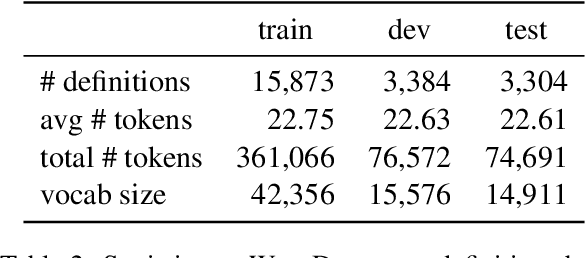Evaluating LLMs for Targeted Concept Simplification forDomain-Specific Texts
Paper and Code
Oct 28, 2024



One useful application of NLP models is to support people in reading complex text from unfamiliar domains (e.g., scientific articles). Simplifying the entire text makes it understandable but sometimes removes important details. On the contrary, helping adult readers understand difficult concepts in context can enhance their vocabulary and knowledge. In a preliminary human study, we first identify that lack of context and unfamiliarity with difficult concepts is a major reason for adult readers' difficulty with domain-specific text. We then introduce "targeted concept simplification," a simplification task for rewriting text to help readers comprehend text containing unfamiliar concepts. We also introduce WikiDomains, a new dataset of 22k definitions from 13 academic domains paired with a difficult concept within each definition. We benchmark the performance of open-source and commercial LLMs and a simple dictionary baseline on this task across human judgments of ease of understanding and meaning preservation. Interestingly, our human judges preferred explanations about the difficult concept more than simplification of the concept phrase. Further, no single model achieved superior performance across all quality dimensions, and automated metrics also show low correlations with human evaluations of concept simplification ($\sim0.2$), opening up rich avenues for research on personalized human reading comprehension support.
 Add to Chrome
Add to Chrome Add to Firefox
Add to Firefox Add to Edge
Add to Edge